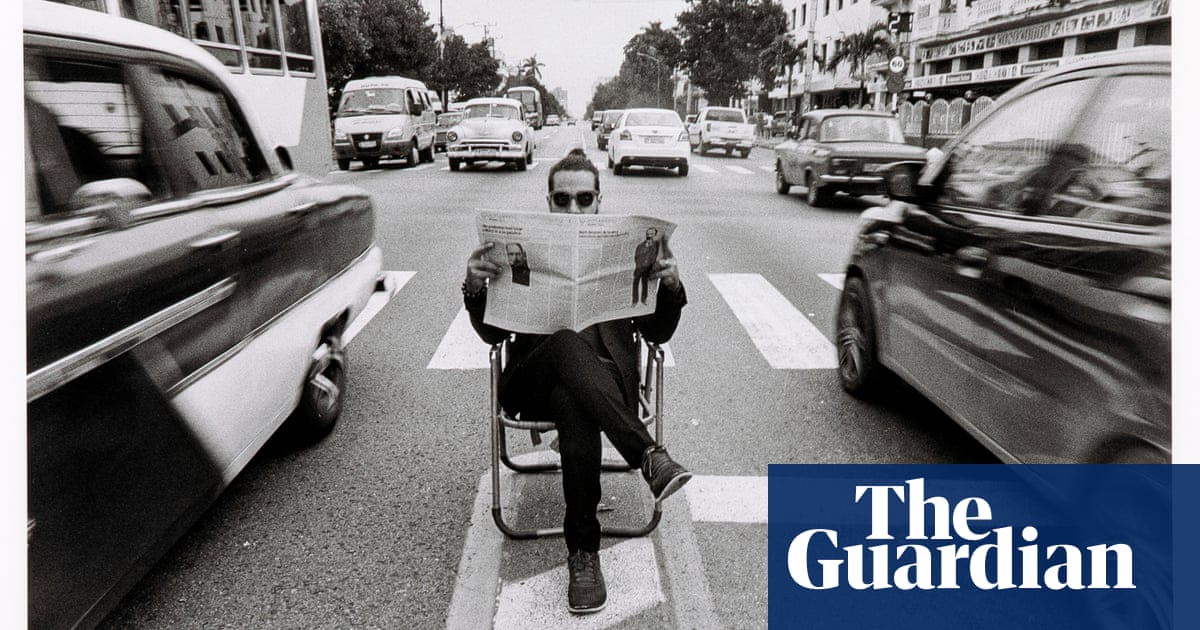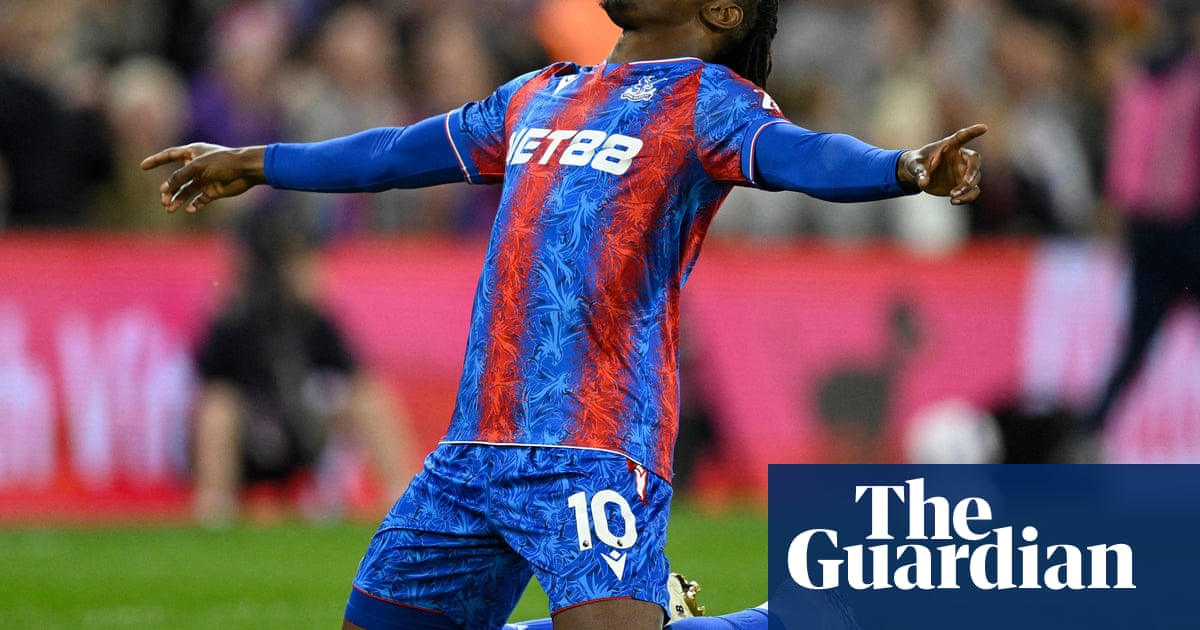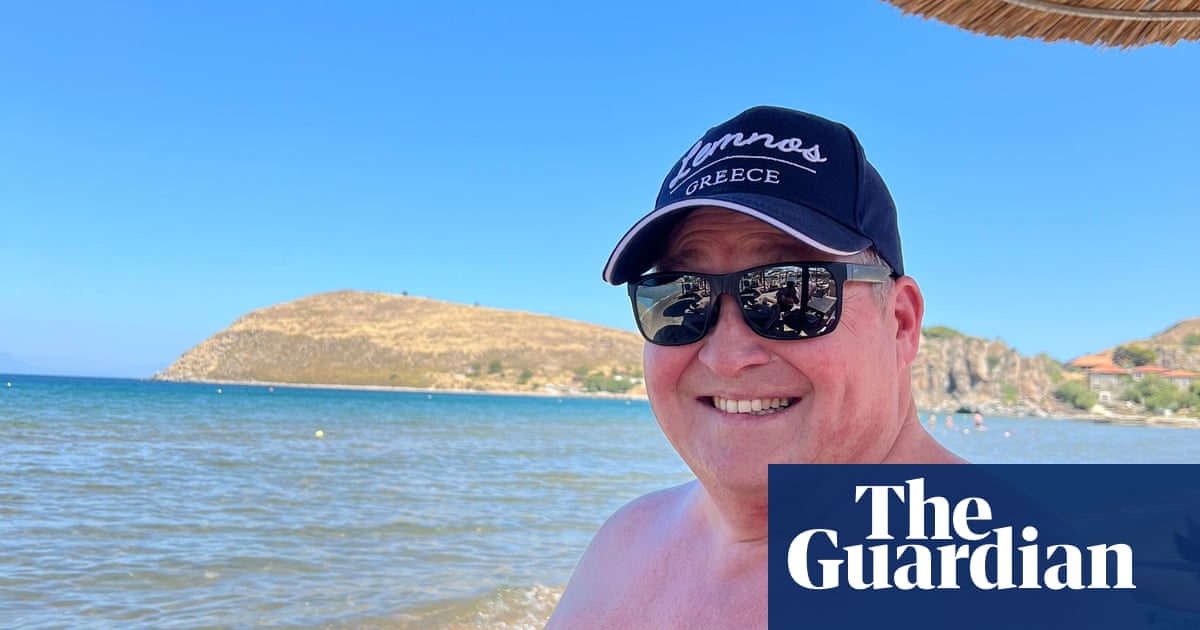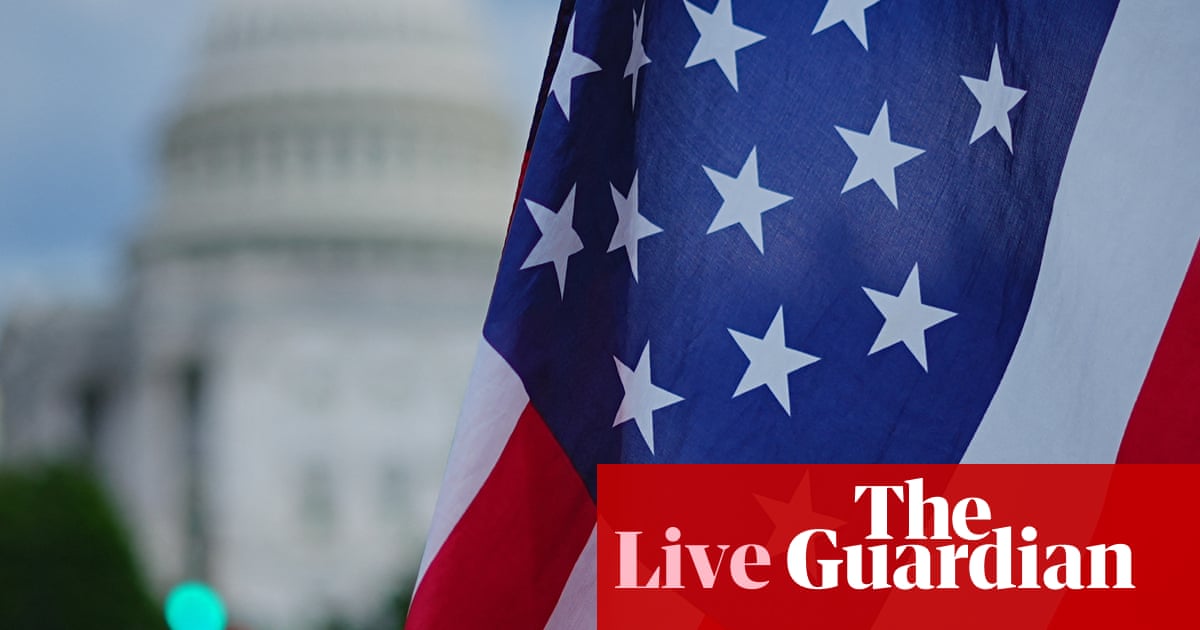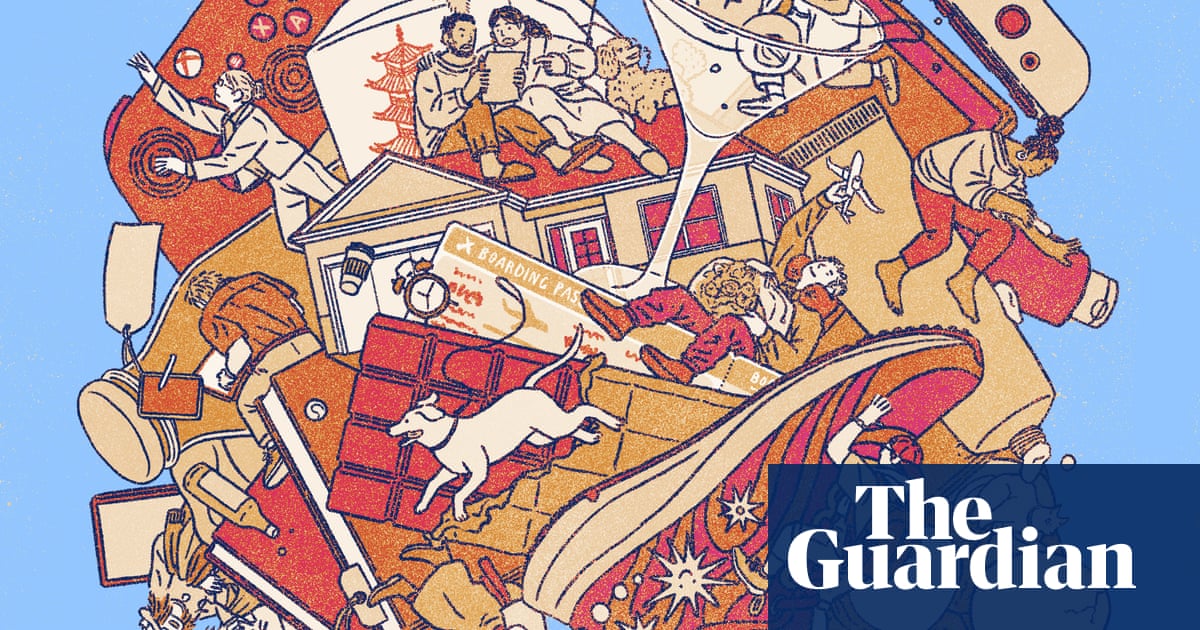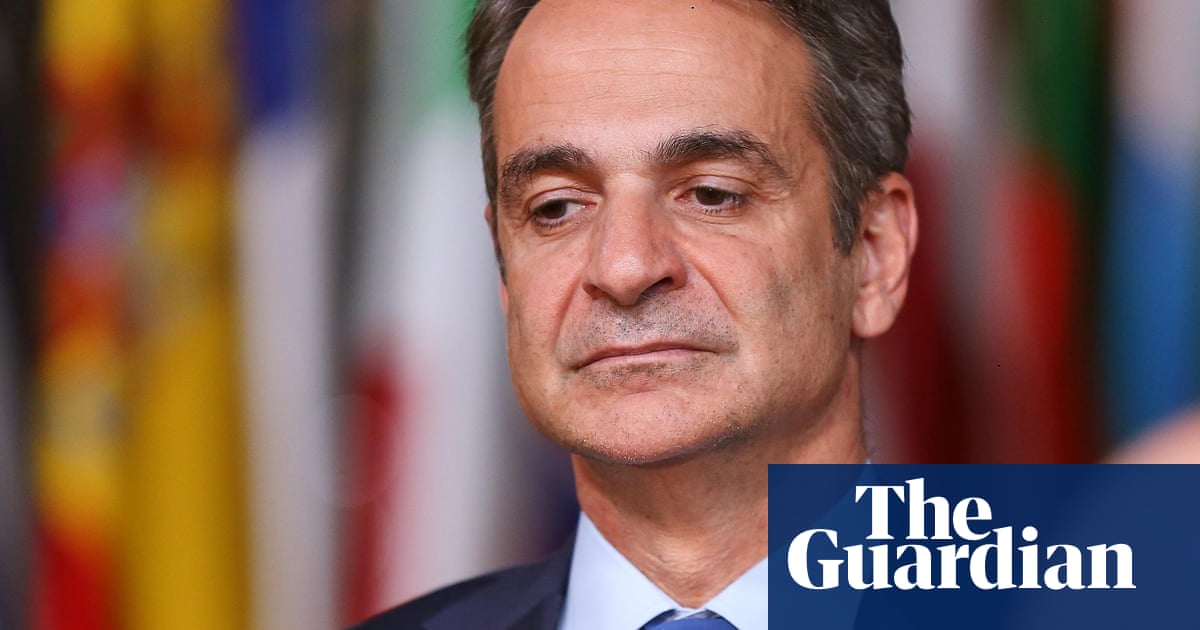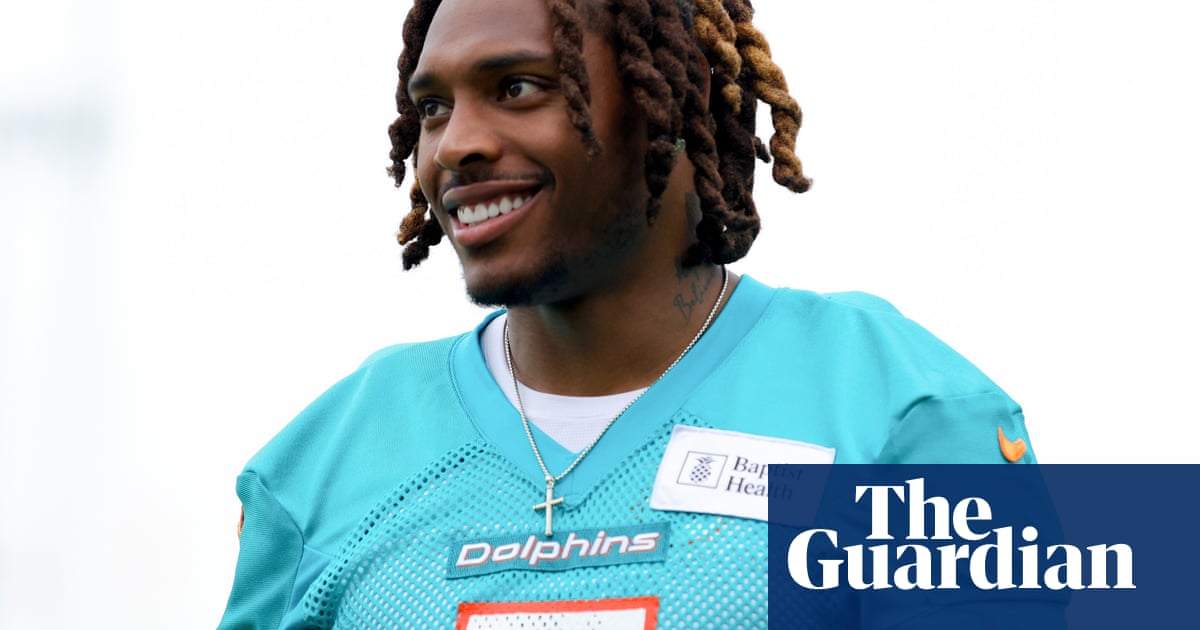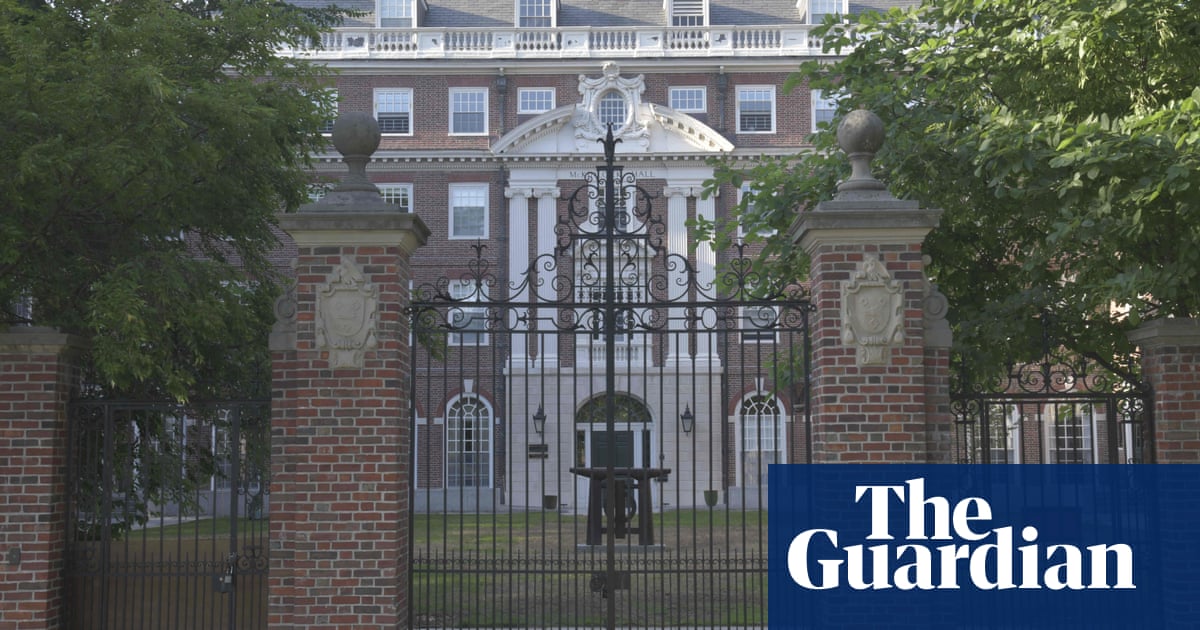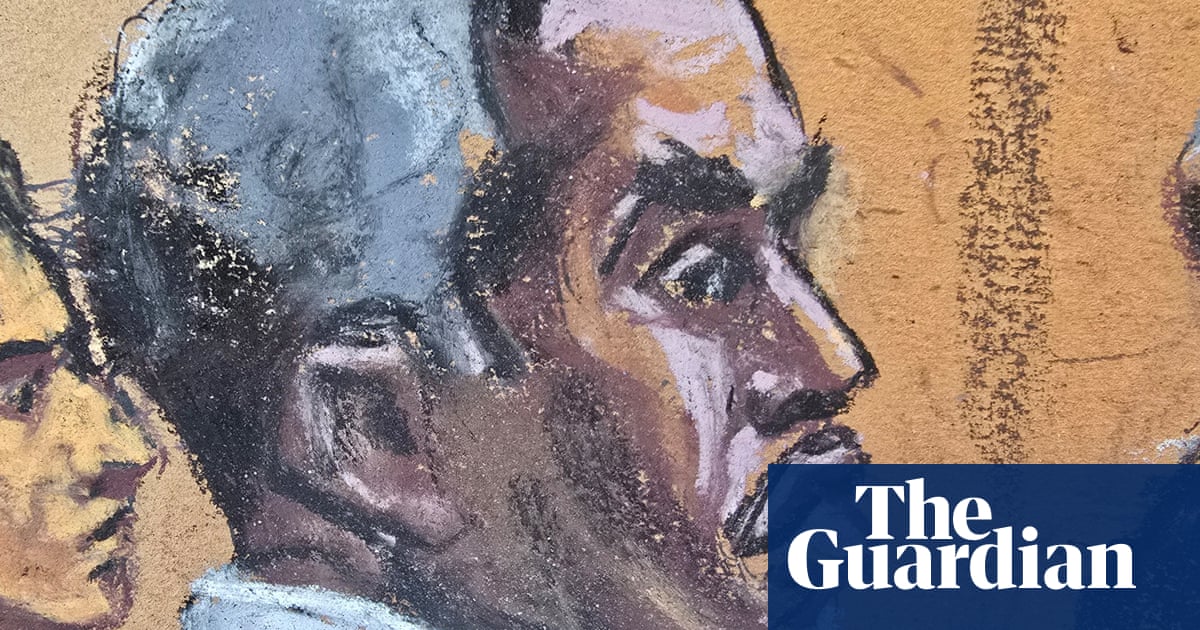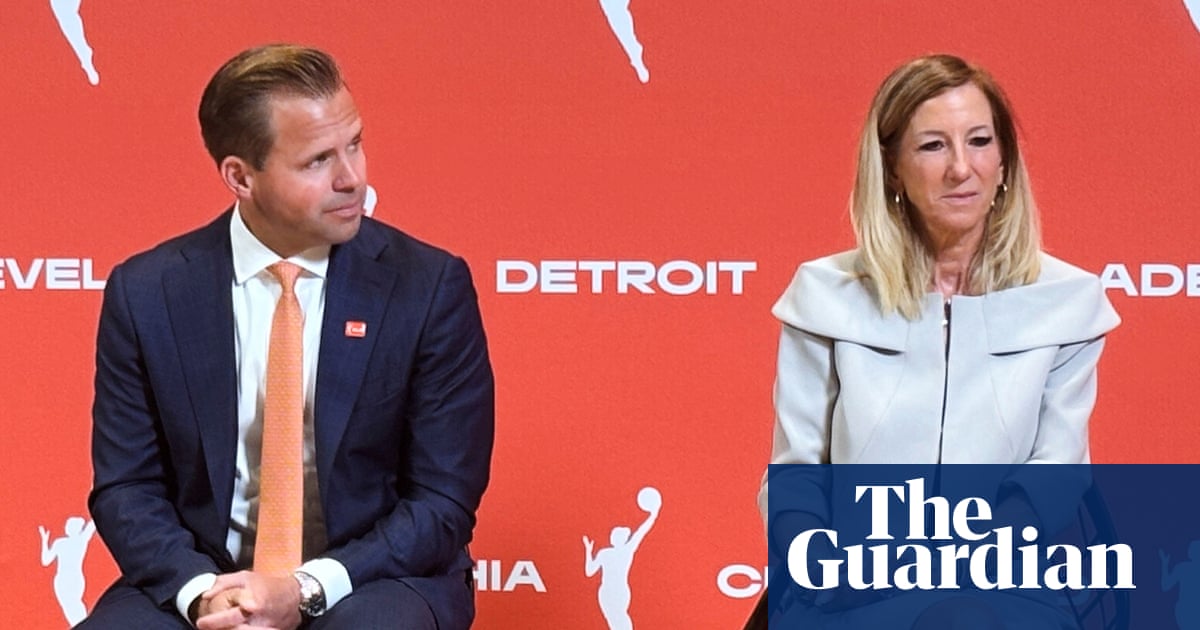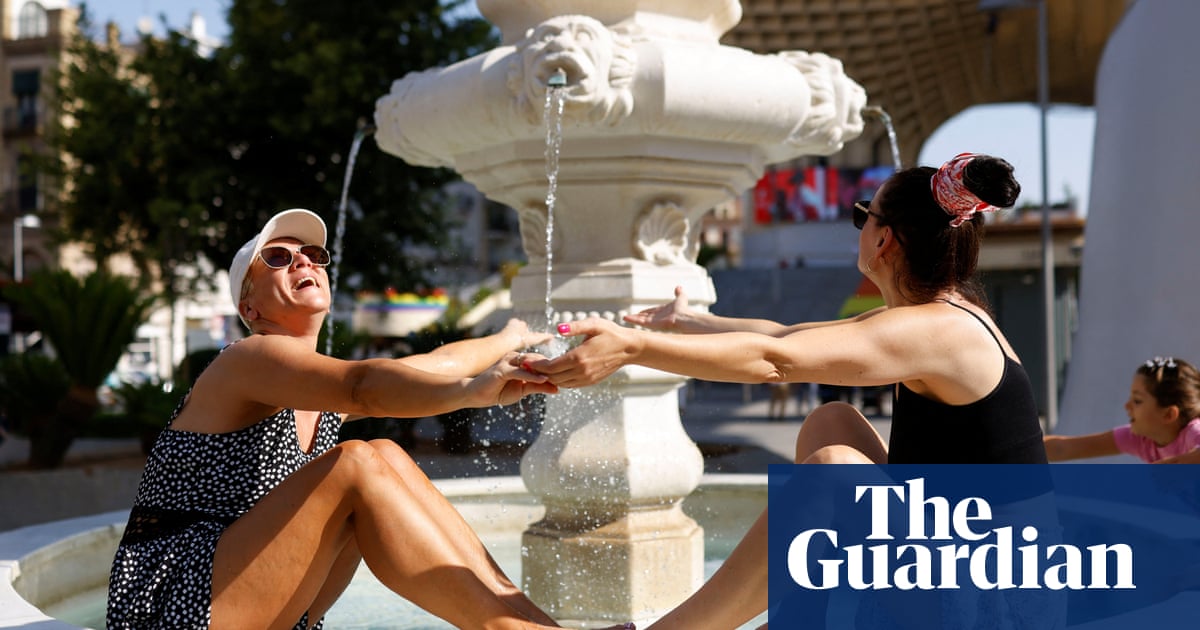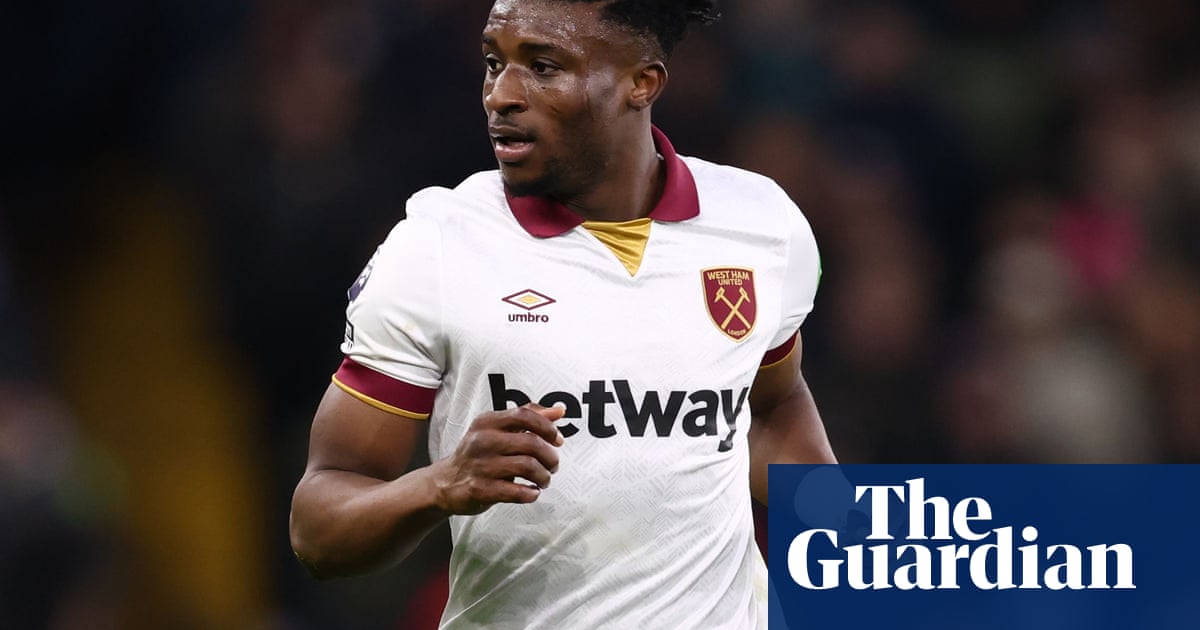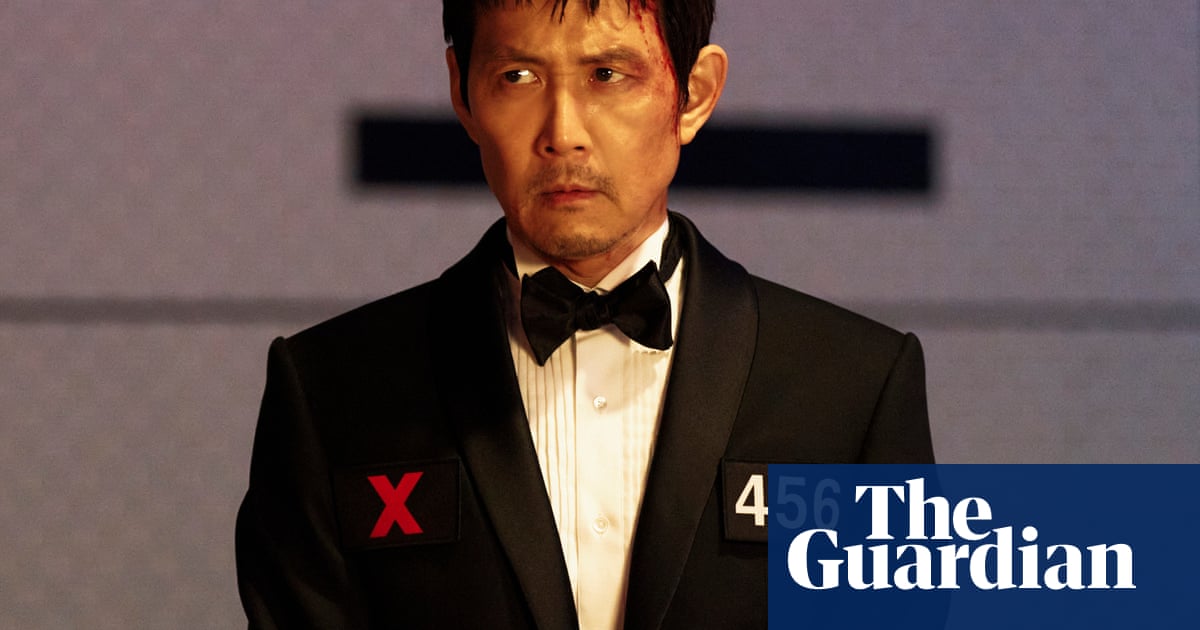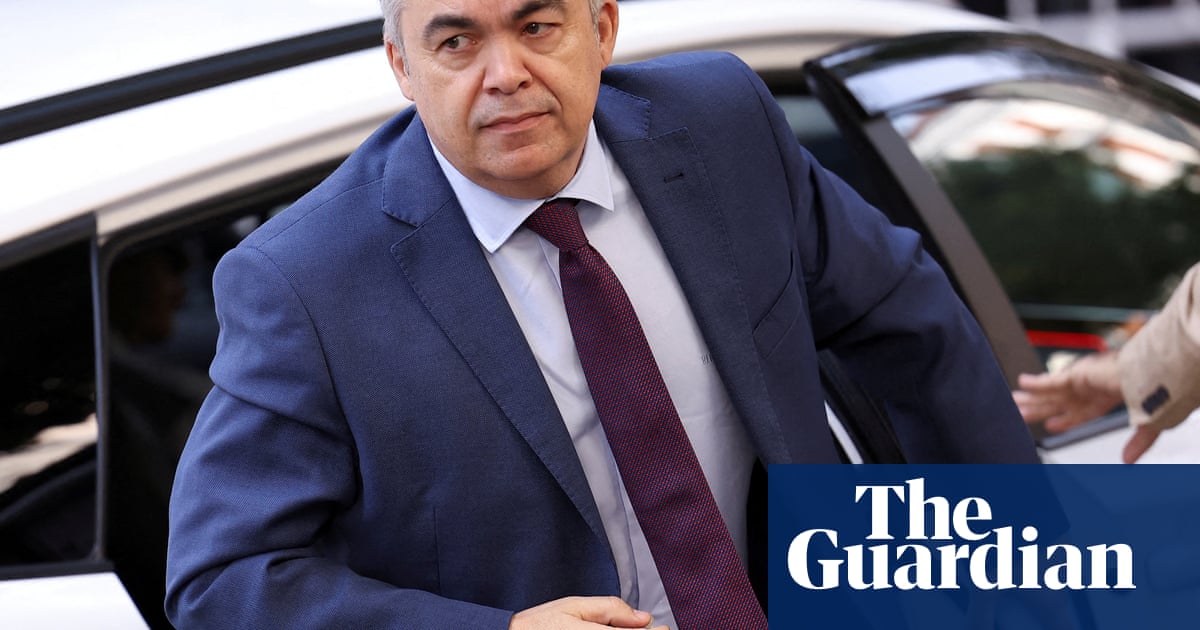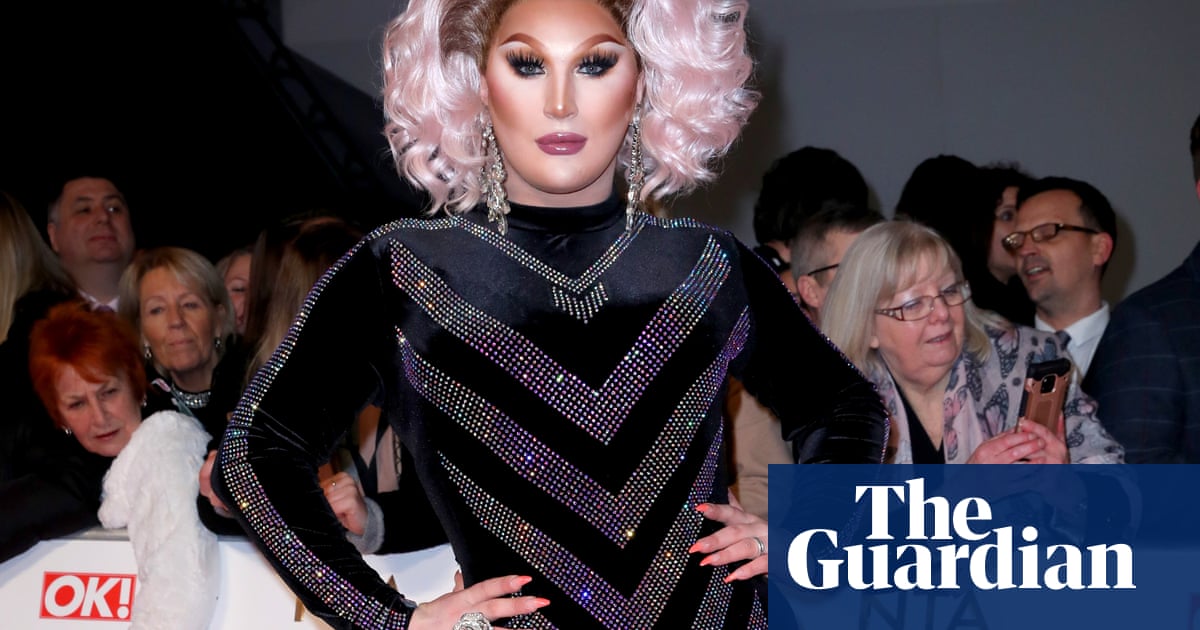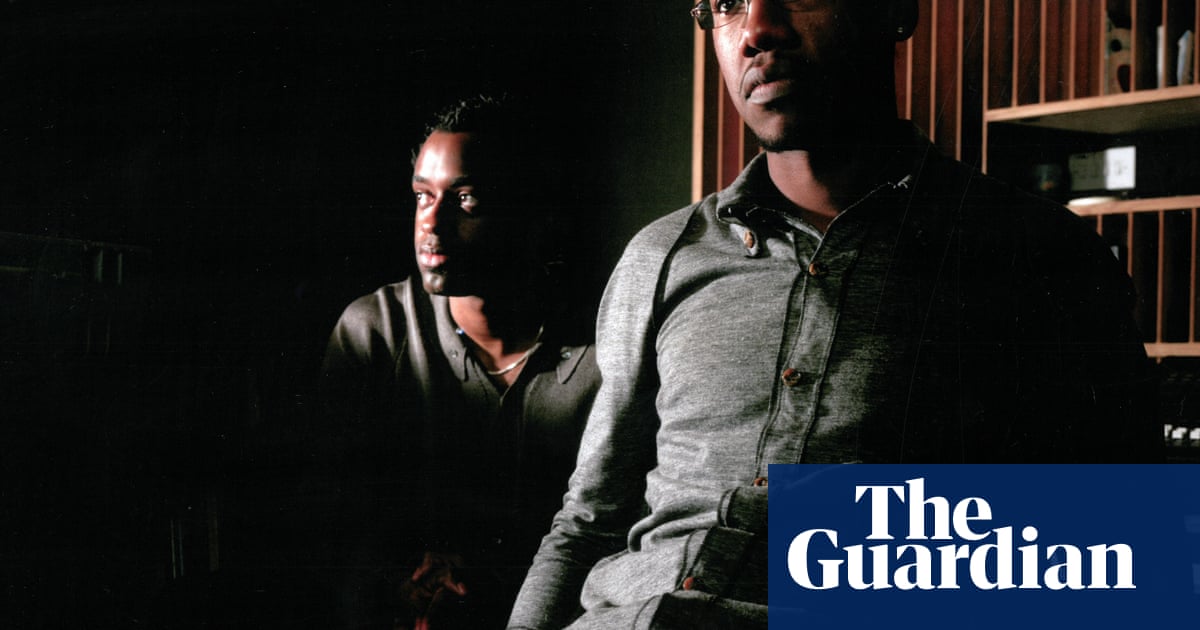Sitting alone at the end of a dinner party, under chandeliers, next to a table with white roses and leftover wine, Giorgia Meloni and Donald Trump are locked in conversation.
It is early December and they are pictured in an opulent dining room of the Élysée Palace, where the French president, Emmanuel Macron, hosted guests after the reopening of Notre Dame Cathedral.
It was the first time Italy’s far-right prime minister had met Trump, a rendezvous that followed years of her nurturing relations with his Make America Great Again (Maga) militants. For all we know, they could have been bonding over a shared disdain for French cuisine.
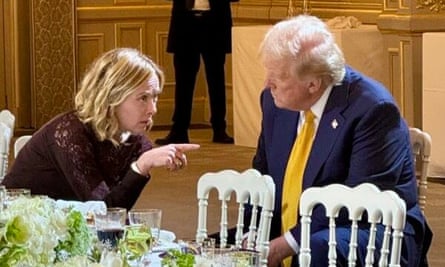
Whatever was discussed, however, Meloni appears to be holding sway. Trump later described her as “a real live wire” and someone he could work with “to straighten out the world a little bit”. He may well have received positive reports on her from Elon Musk, with whom the Italian prime minister has met on several occasions and whom she has called “a brilliant man”.
As the relationship progressed, Meloni paid a flying visit to Trump’s Mar-a-Lago golf club in Florida a month later, and was the only European leader to attend his inauguration as US president.
Now her influence over Trump is to be put to the test when the pair reunite in Washington on Thursday for their first bilateral summit. Meloni is the first European leader to meet Trump since he paused some of his planned tariff hikes last week.
The summit will be closely watched. On one hand, it is an ideal opportunity for Meloni to demonstrate an affinity with Trump, with whom her natural political tendencies lie, while boosting her credentials as a conduit towards more meaningful dialogue. On the other, it will be a delicate balancing act for the prime minister, who also knows she must be careful to maintain her allegiance to Italy’s EU partners.
Behind the scenes, the president of the European Commission, Ursula von der Leyen, and Meloni are understood to have discussed a gameplan. Still, the solo trip has caused anxiety among EU allies, with the French industry minister, Marc Ferracci, warning last week that it threatened to undermine European unity against the US tariffs.
Their concerns are not without reason. Meloni, a former Eurosceptic, defended a blistering attack against European values by Trump’s deputy, JD Vance, at the Munich Security Conference in February. She will be back in Rome on Friday to meet JD Vance, who is in Italy for the Easter weekend.
On Ukraine, despite going along with allies during Joe Biden’s US administration, her Brothers of Italy party abstained, for the first time, on a European parliament resolution in March reaffirming support for Kyiv against Russian aggression. She has been lukewarm over the “coalition of the willing” advocated by Macron and Keir Starmer.
Kathleen van Brempt, a Belgian socialist MEP and vice-chair of the European parliament’s committee on international trade, said the worries about Meloni were understandable.
“But we need to be a bit more nuanced,” van Brempt said. “Meloni knows she needs the support of the council, commission and the parliament in all the talks she has. She can’t go any further than what has been agreed upon. The first goal is getting somebody on the other side of the negotiating table. That is exactly what Meloni will try to do in Washington.”
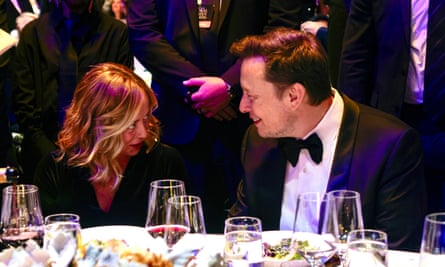
Antonio Giordano, a Brothers of Italy MP and general secretary of the European Conservatives and Reformists party (ECR), who attended last year’s Republican national convention in the US, said Meloni’s priority would be to have a frank conversation with Trump – hopefully one that would break the EU-US deadlock.
“That’s Meloni’s character – when there is a problem, she tends to face it directly, to talk about it,” said Giordano. “This is the first objective of the discussion, regardless of the possible results.”
Giordano said that while Brothers of Italy, a party with neofascist origins, has a natural closeness with Trump’s Republicans, Meloni was good at “reaching a significant level of empathy with everyone”.
after newsletter promotion
“She did a great job with Joe Biden too,” he said. “Obviously, she will be representing Italy, but she has also been clear about Europe being compact. At the same time, she has always insisted that Europe maintains an open dialogue [with the US] and that we do not close the door to a natural ally.”
Meloni has no choice but to be cautious. With Italy being the EU’s third largest exporter to the US, she will be under pressure to protect Italian business and investment interests. She could, some say, try to exempt domestic specialities such as pasta, cheese and wine from the tariffs.
Another key issue will be the US’s biggest trade rival: China. Meloni travelled to the country last year to reset trade ties after withdrawing Italy from the controversial Belt and Road infrastructure investment scheme. However, she is expected to distance herself from attempts in the EU to forge closer ties with China amid its tariff war with the US.
At home, Meloni is also under pressure to maintain unity in her government coalition, especially with Matteo Salvini, recently re-confirmed as leader of the far-right League, challenging her with his explicit support for Trump and criticism of the EU’s policies on Ukraine.
But however much their political instincts are entwined, Meloni might need to lower expectations of her capacity to be Trump’s “whisperer” in Europe.
“She has created an illusion of being Trump’s ‘chosen one’, but it is more and more clear that this is not happening,” said Sandro Gozi, an MEP with the Renew Europe group and Italy’s former Europe minister. “Trump sees the EU as an obstacle to his imperialistic strategy and he’s not doing anything to hide it. But if he wants to negotiate with us, it will be through von der Leyen and not Meloni.”
True to character, as Meloni sidles up to Trump, she has also been engaging with some of her Italian opposition, recently attending the congress of Azione, a liberal centrist party.
The party’s leader, Carlo Calenda, said Meloni was “at a crossroads”, faced with the dilemma of choosing between the US and Europe.
“I told her this when she came to the congress,” he said. “There is an aspiring autocrat in the White House who considers us enemies – his plan is to break up Europe. But our future is indissolubly linked to Europe, and Italy must be part of the decisions that are taken together. I don’t think Meloni has made that choice yet.”

 2 months ago
95
2 months ago
95
